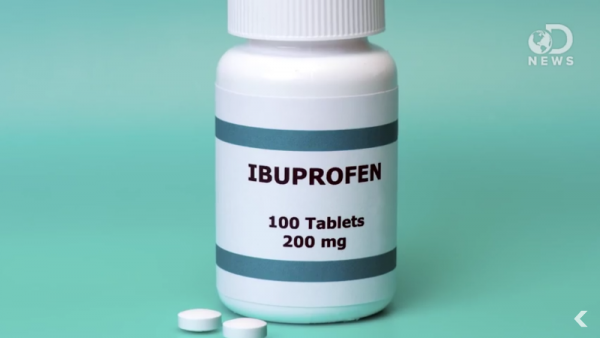By KM Diaz, | March 16, 2017

The on-going study investigates how NSAID and cardiac arrest are related to each other. (YouTube)
Painkillers are supposed to be safe to use. However, these "harmless" painkillers are associated with an increased risk of cardiac arrest.
One of the most commonly used drugs are he non-steroidal anti-inflammatory drugs also known as NSAIDs. They can be bought even without any prescription, which is why some people think it is safe to use, according to Gunnar H. Gislason, Professor of Cardiology at Copenhagen University Hospital Gentofte, Denmark.
Like Us on Facebook
In a previous study, scientists discovered that NSAIDs are associated with cardiac arrest. This is a source of major concerns since painkillers are used worldwide.
The on-going study investigates how NSAID and cardiac arrest are related to each other. Patients in Denmark who had a cardiac arrest out of the hospital from 2001 until 2010 were classified by the Danish Cardiac Arrest Registry. The prescription of NSAIDs from various Danish pharmacies since 1995 were also collected.
The scientists used a case-time-control method to recognize the relationship between NSAID used by the patients and cardiac arrest. Each participant was considered to be case and control in two separate period and studies.
Using NSAIDs within 30 days before the cardiac arrest is considered as case period. While using NSAIDs during the preceding 30 days before the cardiac arrest is considered as the control period, the results of the trial were compared.
Additional information from over-the-counter drugs was not obtained. The only type of over-the-counter NSAID in Denmark is ibuprofen which is limited for about 200 mg dosages per small package. Since the patients in the trial were also the control, the influence of ibuprofen must be equal to the distribution of case and control period.
In the 10 year period, Denmark has a total of 28,947 out-of-hospital patients that had a cardiac arrest. There were about 3,376 patients treated using NSAID for almost 30 days before the cardiac arrest followed. The most commonly used NSAIDs before the event are diclofenac and ibuprofen, with a total of 21 up to 51 percent.
This is a reminder that not all painkillers are harmless. The most commonly used drugs (ibuprofen and diclofenac) can significantly increase the risk of cardiac arrest. Although they are considered to be safe, they should have validation and prescription. Moreover, patients who have prior cardiovascular disorders must avoid these drugs, Professor Gislason noted.
Additionally, NSAIDs have other effects to the cardiovascular system such as blood clots, platelet aggregation, arteries constriction, increase blood pressure, and raise the amount of fluid retention.
Professor Gislason also advised those patients using ibuprofen on not to take more than 1200 mg per day. The most dangerous among NSAIDs is the diclofenac which should be avoided particularly those who have existing cardiovascular disease. And the safest drug among NSAIDs is naproxen which can be used up to 500 mg per day.
-
Use of Coronavirus Pandemic Drones Raises Privacy Concerns: Drones Spread Fear, Local Officials Say

-
Coronavirus Hampers The Delivery Of Lockheed Martin F-35 Stealth Fighters For 2020

-
Instagram Speeds Up Plans to Add Account Memorialization Feature Due to COVID-19 Deaths

-
NASA: Perseverance Plans to Bring 'Mars Rock' to Earth in 2031

-
600 Dead And 3,000 In The Hospital as Iranians Believed Drinking High-Concentrations of Alcohol Can Cure The Coronavirus

-
600 Dead And 3,000 In The Hospital as Iranians Believed Drinking High-Concentrations of Alcohol Can Cure The Coronavirus

-
COVID-19: Doctors, Nurses Use Virtual Reality to Learn New Skills in Treating Coronavirus Patients











